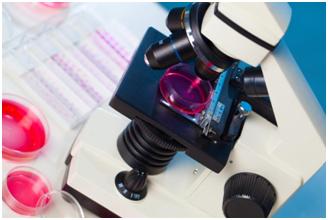|
Allergy Tests Change Lives, Save Lives Allergies affect more than 50 million people in the U.S., causing mild annoyances for some, chronic illnesses for others, and life-threatening health complications for a disturbingly large number. Many people are unaware that they have allergies, only discovering the problem when they have a reaction to something. For some, this can have dire consequences if their allergic reaction is severe. Allergy testing by healthcare professionals using specialized medical equipment can help patients learn of potential health hazards and also isolate allergens that may be causing them distress. 
According to the American College of Asthma, Allergies and Immunotherapy, asthma and allergies such as hay fever, eczema, and food allergies affect people in all age groups. Allergies are the sixth leading cause of chronic illness in the U.S. and cause health care costs of more than $18 billion per year. Research shows that the number of people suffering from allergies has grown in recent years, attributable somewhat to better diagnosis, and also to increased pollution. Diagnosis and treatment of allergies can greatly improve the quality of life for patients and may even save their lives if they have a severe allergy.  What Are Allergies?
Allergies are an overresponse by the immune system to substances people come in contact with, such as pollen, foods, pet dander, bee venom, etc. Substances that cause allergic reactions are referred to as allergens. When people come into contact with an allergen they are sensitive to, their immune system tries to destroy the allergen. 
For some, this immune response will result in a runny nose, red eyes, a rash, itchy skin, or shortness of breath. For others, responses can be more severe: bronchoconstriction, edema, coma, anaphylaxis, or even death. Anaphylaxis is one of the most severe symptoms of allergies, and it can cause reactions in multiple organ systems. About .05 to 2 percent of the population experiences it at some point in their lives. Some of the most common allergies include:
Heredity and environmental factors such as pollution and childhood illnesses impact whether people develop allergies. An allergy test can help doctors isolate allergens that patients are allergic to and help them treat chronic allergies or advise patients on what substances to avoid. Allergic Testing Allergy tests allow healthcare professionals to determine what substances may cause an allergic reaction in a patient. Allergy tests typically involve using medical equipment to conduct a skin or blood test. Skin tests are less expensive and are more common than blood tests. There are three types of skin tests:
Skin tests provide quick results and have a high degree of accuracy in identifying patient allergies. Theyre not suited for all patients, so doctors may employ blood testing to identify allergies in some patients. Blood Tests for Allergies Blood tests seek out antibodies in the blood to determine whether a patient is allergic to a substance. Blood tests are less sensitive than skin tests and are most often employed when the patient is unable to tolerate a skin test. 
Allergy tests are recommended when:
The most commonly used blood test for allergies is called the ELISA, or enzyme linked immunosorbent assay. When people have an allergic reaction, their bodies increase production of antibodies specific to that allergen. Doctors are able to identify antibodies corresponding to various allergens. The ELISA blood test measures the level of allergen-specific antibodies in the patients blood. 
Another blood test used by doctors to identify allergies is the RAST test. The RAST test searches for specific allergen-related antibodies. RAST is an older test and is not often used today. Further blood tests involve checking white blood cell levels, particularly a type of white cell referred to as eosinophil. The chief drawbacks of blood testing for allergies are that it takes longer to get results, and it is more expensive than skin tests. By determining that a patient has allergies, and isolating allergens that trigger allergic reactions in that patient, doctors can recommend treatments that can alleviate symptoms related to their allergies. Doctors can also recommend avoiding foods and situations likely to provoke allergic reactions. Doctors advise patients on what to do if they accidentally encounter these allergens, such as keeping an EpiPen nearby for severe reactions. Severe allergic reactions are no small matter. Nearly 200,000 people visit emergency rooms and 10,000 stay in the hospital each year from food allergies alone. According to the Asthma and Allergy Foundation of America, the elderly and African Americans tend to have the most severe reactions to medicines, foods, and unknown allergies. For patients with food allergies or other severe allergies, having this knowledge can spell the difference between life and death. Medical professionals performing allergy tests need clean, safe, and reliable medical equipment to do the work. Medical Device Depot provides top quality medical devices and equipment to clinics and hospitals around the nation. The company provides customer service few other medical equipment companies can match, as Medical Device Depot staff members have backgrounds in the healthcare field, and can explain how products fit specific needs and can recommend the best items for individual clients.
For healthcare professionals seeking quality allergy testing supplies and equipment, Medical Device Depot offers brand name gear at highly competitive prices.
|
